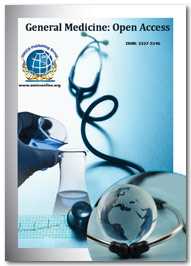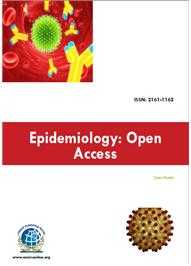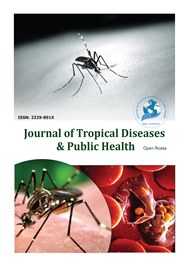Theme: Discovering and Promoting Solutions to Global Health
Epidemiology-2015
We extend our warm welcome to you all to 3rd International Conference on Epidemiology and Public Health which is going to be held at Valencia, Spain from 04-06th August 2015 with the theme "Discovering and Promoting Solutions to Global Health "
Conference Objective:
Epidemiology-2015 will be held during August 04-06 2015 at Valencia, Spain with the support and collaboration of editorial board members and scientific partners. The main motto of this conference is to bring all the renowned Epidemiologists, Clinicians, Public Health practitioners, Biostatisticians, Healthcare Policymakers, Industry experts, Researchers and Students under a common roof.
Epidemiology-2015 provides opportunity for epidemiologists from different countries across the globe to meet and discuss their common interests of addressing the issues & challenges of global health.
- Promote the use of epidemiology and its application to the solution of health problems.
- To enhance the formulation of public policies designed to solve identified local and national health problems and priorities.
- To assure that all populations have access to appropriate and cost-effective care, including health promotion and disease prevention services.
- Encourage the development of epidemiological methods and improvement in these methods.
- The assessment and monitoring of the health of communities and populations at risk to identify health problems and priorities.
- Promote the communication of epidemiological methods and findings amongst epidemiologists throughout the world as well as amongst all others concerned with health.
- Co-operate with both national and international organisations which are concerned with the promotion of health in the application of epidemiological methods in the solution of problems.
- Improve the dissemination of epidemiological findings nationally and internationally.
- To enhance the biostatisticians application of statistical methods to the solution of problems encountered in public health and medicine.
We believe these objectives can be achieved through disseminating workshops, symposiums and open disscussion forums happening at our international conference "Epidemiology-2015".
Who Can Attend
| Academicians | NGO workers |
| Biostaticans | Para medics |
| Community health workers | Patient Navigators |
| Community planners | Physicians |
| Community service providers | Policy makers |
| Community-based organization staff | Program coordinators and administrators |
| Environmental health professionals | Public health educators |
| Epidemiologists | Public health nurses |
| Health Educators | Public health professionals |
| Health officials | Registered Nurses |
| Local public health agency staff | Related health professionals |
| Master/PhD students | Researchers and faculty |
| Medical professionals | Scientists |
|
Mental Health Professionals |
State public health agency staff |
| Others |
Track 1: Public Health Systems Strengthening
Public Health Systems reinforcing concentrates on ascertaining that people and institutions, both public and private, undertake core functions of the health system (governance, financing, accommodation distribution, health workforce, information, and medicines/vaccines/other technologies). Public Health System focus is on quantifying, monitoring and ameliorating the clinical and financial performance of public health accommodations organizations, as well as training public health bellwethers for organizational change. Public health systems take care of such as public health policy analysis, public health finance, accounting, budgeting, and human resources. The public health workforce requires au courant cognizance and skills to distribute quality essential public health accommodations. Quality assurance and quality amelioration activities are integral to public health practice. Health Systems Invigorating through Human Resource Capacity Building, Efficacious Health Management and Efficient Financing deals with issues such as orchestrating, development, performance, management, retention, information, and research on human resources for the health care sector.
Track 2: Approaches to Health Security and Emergency Response
Approaches to Health Security and Emergency Response are prepared for protection of people from threats and risks communities faces from both persistent and emerging threats, including severe weather, viral Infections, global emergence and re-emergence, infectious diseases, hazardous material exposures, and terrorist attacks. The incipient approach called Viral Evolutionary Ecology cumulated with epidemiology will avail us to better explicate many emerging viral diseases by encompassing the involute interface between such factors as genetic structure, evolutionary biology and ecology of pathogens, and environmental aspects such as biodiversity, society, and human impact on natural ecosystems. Immunization can drastically reduce your chances of contracting many diseases. Vaccination invigorates a singular's invulnerable framework to create versatile invulnerability to pathogen. Immunizations are among the most financially savvy clinical preventive administrations and are a center segment of any preventive administrations bundle. A Vaccine preventable ailment is an irresistible illness for which a viable preventive antibody exists.
Track 3: Recent Advances in Occupational Health
Occupational epidemiology is the study of disease transmission alludes to the ID and control of the dangers emerging from physical, compound, and other working environment perils so as to build up and keep up a sheltered and sound work space. Occupational health manages all parts of health and safety in the working environment and has an in number concentrate on essential aversion of dangers. The wellbeing of the specialists can be enhanced by Application of Epidemiologic Methods to Populations of Workers, mulling over the including danger elements at the working environment prompting diseases, mischances, musculoskeletal infections, respiratory diseases, listening to misfortune, circulatory illnesses, anxiety related issue and communicable diseases and others. Occupational epidemiology involves the application of epidemiologic methods to populations of workers. Occupational epidemiology studies may involve looking at workers exposed to a variety of chemical, biological or physical (e.g., noise, heat, and radiation) agents to determine if the exposures result in the risk of adverse health outcomes.
Track 4: Implications of Recent Public Health Interventions
Public Health Interventions may incorporate Health System Development and Reform Policy, administrative activities, propelling the Need for Global Multi-Disciplinary Approaches in Public Health Education and Practice. The need for new and improved information systems such a Digital Epidemiology is required for public health informatics because of new challenges related to antibiotic-resistance, emerging infections, and chemical and biological terrorism. Public health interventions are intended to promote or protect health or prevent ill health in communities or populations. Population Health Management needs to do with the association and administration of the human services conveyance framework in a way that makes it all the more clinically powerful, more practical and more secure. Public Health Informatics (Social Media, Mobile Applications, and so forth.) manages the assets, gadgets and systems needed to improve the procurement, stockpiling, recovery and utilization of data in wellbeing and biomedicine.
Track 5: Environmental Epidemiology and the Impact on Public Health Practice
Environmental Epidemiology looks to see how physical, synthetic, biologic, pathogens, and, social and financial variables influence human Health. Social variables, which is the place one lives, works, mingles or purchases nourishment, frequently impact introduction to natural elements. Climate change is additionally posturing dangers to human Population Health and prosperity and along these lines is rising as a genuine concern around the world. Public health surveillance and epidemiology are the foundations for disease prevention because they provide the factual basis from which agencies can set priorities, plan programs, and take actions to protect the public health.
Track 6: From Data to Policy: Changing life style and global non-communicable diseases prevention strategies
Today, non-communicable diseases are in charge of more than 75% of deaths around the world. The gigantic social and monetary toll of non-communicable diseases overall requires a coordinated key way to deal with lessen diseases and deaths because of non-communicable diseases. In low- and middle-income countries, more people die from cancer than from AIDS, malaria and Tuberculosis combined. Health systems can be improved through epidemiologists and public health professionals by study of cardiovascular diseases epidemiology, cancer epidemiology, diabetes epidemiology; mental health epidemiology, chronic respiratory disease epidemiology, injury epidemiology and disabilities, musculoskeletal conditions and genetic epidemiology.
Track 7: Global Disease Surveillance and Statistical Models
Global Disease surveillance is a data based action including the gathering, investigation and translation of extensive volumes of information beginning from a variety of sources. Disease surveillance is to predict, observe, and minimize the harm caused by outbreak, epidemic, and pandemic situations, as well as increase knowledge about which factors contribute to such circumstances. Over the last two decades, the global health and economic impacts of SARS, H5N1, H1N1, and Ebola have raised global awareness of pandemic threats. In many cases, the most at-risk regions lacked the capacity to effectively monitor and report the first signs of outbreaks within their nations, let alone coordinate such communications with neighbouring countries. Statistical epidemiology is an emerging branch of the disciplines of epidemiology and biostatistics that aims to bring more statistical rigour to bear in the field of epidemiology.
Track 8: Nutrition Epidemiology
Nutritional epidemiology is one of the younger disciplines in epidemiology. Limitations in Nutrition Epidemiology Research may be partially due to the difficulties in measuring diet as an exposure. Diet and physical activity are arguably the most difficult exposures to assess in observational research and are plagued by considerable measurement error. There were 925 million undernourished people in the world in 2010, an increase of 80 million since 1990, despite the fact that the world already produces enough food to feed everyone (7 billion people).
Malnutrition, defined as underweight, is a serious public health problem that has been linked to a substantial increase in the risk of mortality and morbidity. Women and young children bear the brunt of the disease burden associated with malnutrition. In Africa and South Asia, 27−51% of women of reproductive age are underweight and it is predicted that about 130 million children will be underweight in 2005 (21% of all children). Many of the 30 million low-birth-weight babies born annually (23.8% of all births) face severe short-term and long-term health consequences.
Track 9: Social Epidemiology
The social epidemiology cluster seeks to understand the ways in which Social Determinants of Health, Behaviour, Institutions, Social Networks, psychological, political, Demographic change, cultural, Inequity in Low-Middle- Income Countries and economic circumstances influence our chances for a healthy status. School Health Epidemiology is to improve the health of students, school personnel, families and other members of the community through schools.
Track 10: Psychiatric Epidemiology
A noteworthy test for Psychiatric Epidemiology to build the pertinence of their expository exploration to their associates in protection psychiatry and to social arrangement investigators. Regardless of empowering advances, much work still should be led before psychiatric epidemiology can understand its capability to enhance the emotional well-being of populaces. Analyst's most noteworthy trust in achievements in our comprehension of the etiology of mental health would originate from Genetic Epidemiology. Promoting Mental Health: Concepts, Emerging Evidence, Practice aims to bring to life the mental health dimension of health promotion.
Track 11: Human Sexual Behaviour and Reproductive Health
Reproductive Health includes factors that influence the ability of men and women to produce healthy offspring. Maternal and Perinatal Health Epidemiology focuses on the generation, synthesis, analysis, use and dissemination of evidence at various levels in order to inform the cycle of research, development, implementation, monitoring and evaluation and to provide key strategic information which can lead to action and positive changes in policies, strategies, health system, and ultimately in maternal and child health status. Important linkages exist between maternal health, child health, and family planning. Family Planning Is Key to Healthier Mothers, Babies, and Societies. Ovarian cancer and Cervical Cancer varies widely in frequency among different geographic regions and ethnic groups, with a high incidence in Northern Europe and the United States, and a low incidence in Japan. Geriatric Services offers a wide array of services thoughtfully developed to cater to the special needs of the growing population of older adults. Domestic Violence Epidemiology can include attempted or completed physical assault, rape and sexual coercion, neglect, and psychological assault using threats, intimidation, and harassment. The Health of Sexual Minorities will focus on the epidemiology and health concerns of sexual minority youth who identify themselves as lesbian, gay, bisexual, or unsure (questioning) of their sexual identity, who avoid discrete sexual orientation labels, and who have had sexual contact with persons of the same sex or persons of both sexes. An overview of primary care for such youth is presented separately. Ethical, Legal, Social, and Political Implications of Sexual Orientation inborn or fixed at early age.
For more details: Epidemiology and Public Health market analysis
Conference Highlights
- Public Health Systems Strengthening
- Approaches to Health Security and Emergency Response
- Recent Advances in Occupational Health
- Implications of Recent Public Health Interventions
- Environmental Epidemiology and The Impact on Public Health Practice
- From Data to Policy: Changing life style and global non-communicable diseases prevention strategies
- Global Disease Surveillance and Statistical Models
- Nutrition Epidemiology
- Social Epidemiology
- Psychiatric Epidemiology
- Human Sexual Behavior and Reproductive Health
To share your views and research, please click here to register for the Conference.
To Collaborate Scientific Professionals around the World
| Conference Date | August 04-06, 2015 | ||
| Sponsors & Exhibitors |
|
||
| Speaker Opportunity Closed | Day 1 | Day 2 | Day 3 |
| Poster Opportunity Closed | Click Here to View | ||
Useful Links
Special Issues
All accepted abstracts will be published in respective Our International Journals.
Abstracts will be provided with Digital Object Identifier by






























